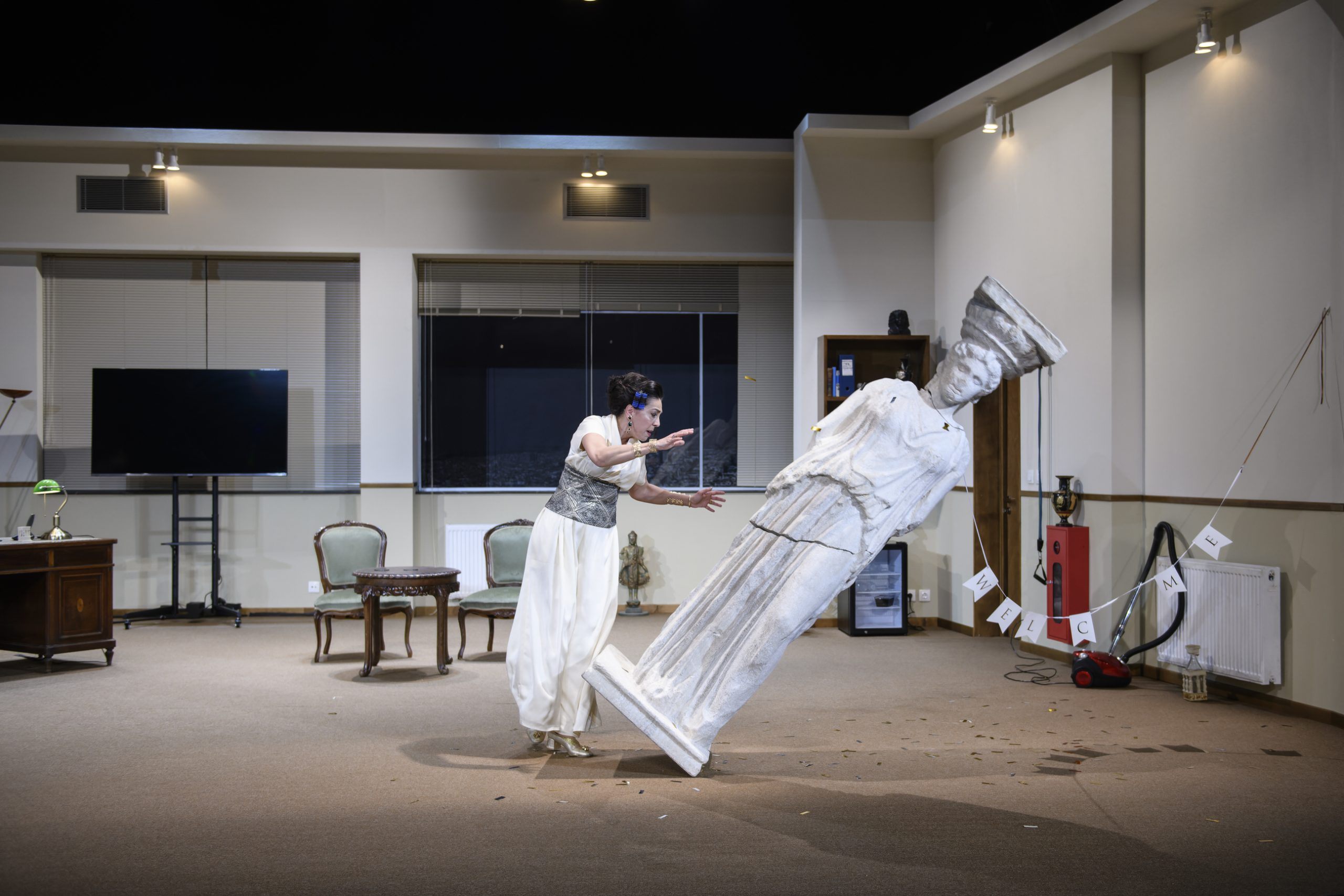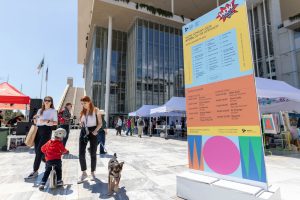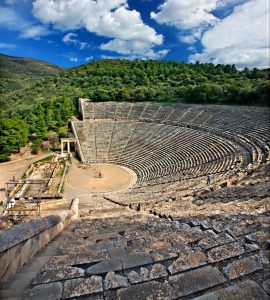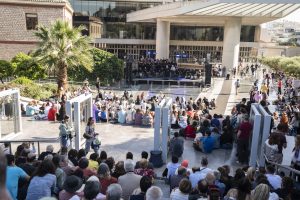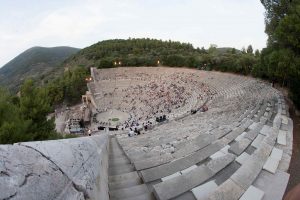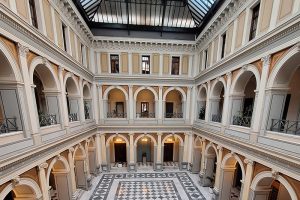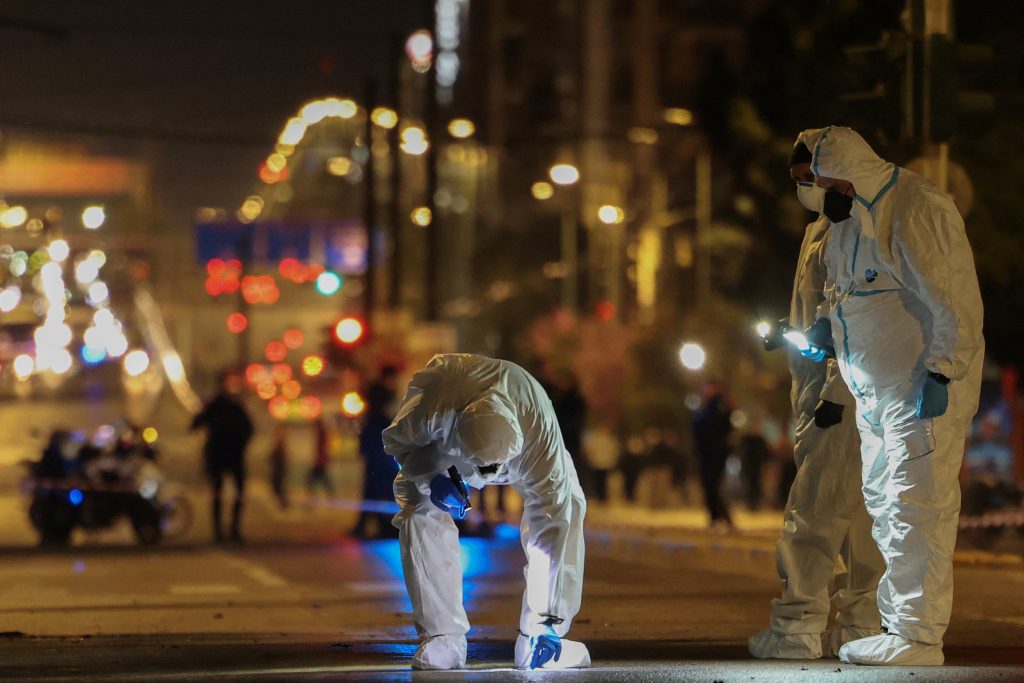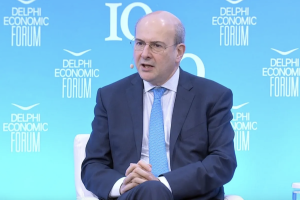The lights are on at the Greek National Theatre’s iconic Ziller building, and the voices filling its halls speak many languages — but share one art form. Over 200 theatre professionals from 42 countries have gathered in Athens for a week of dialogue, performance, and exchange, as the National Theatre hosts three major international events from April 3 to 7.
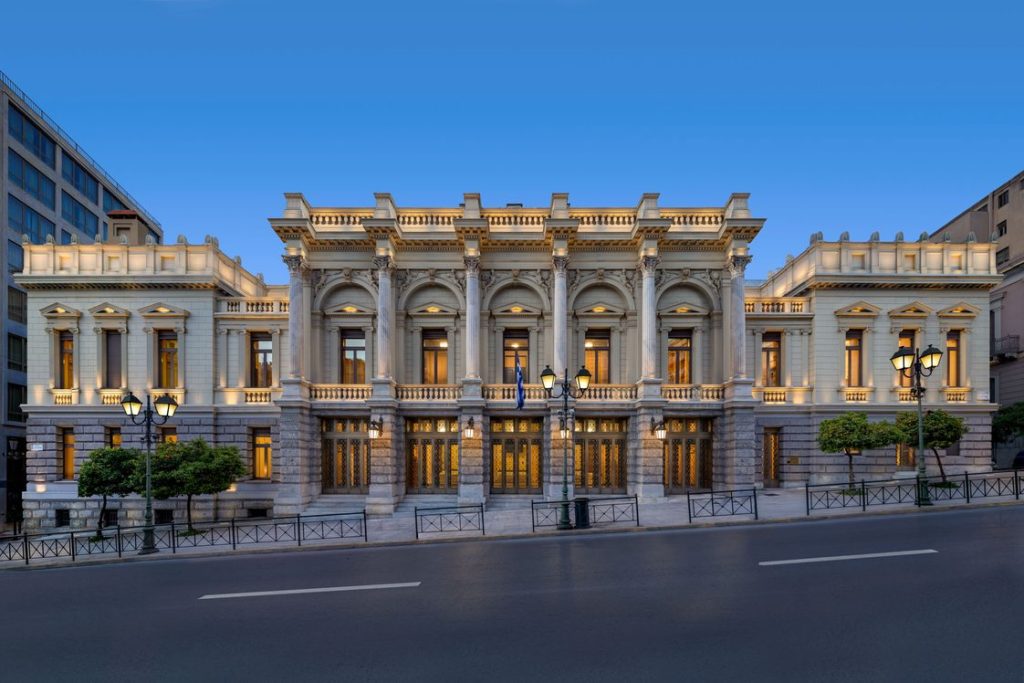
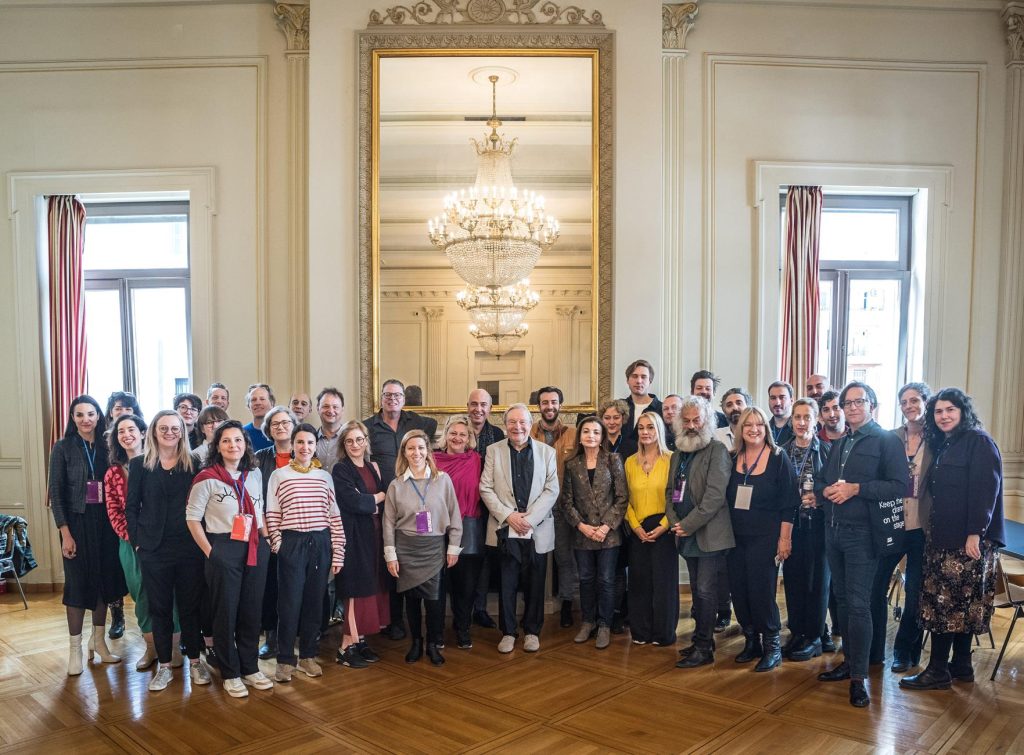
The 3rd NTG Showcase, the European Theatre Convention Conference, and the Meeting of the International Association of Theatre Critics have brought together a distinguished cohort of artistic directors, stage directors, dramaturgs, international relations managers, curators, critics, and scholars. Representing 88 different theatre organizations, these leading figures in global theatre are gathering in the birthplace of drama to collaborate, reflect, and co-create ideas for a more dynamic and inclusive future for theatre, the arts, and society at large.
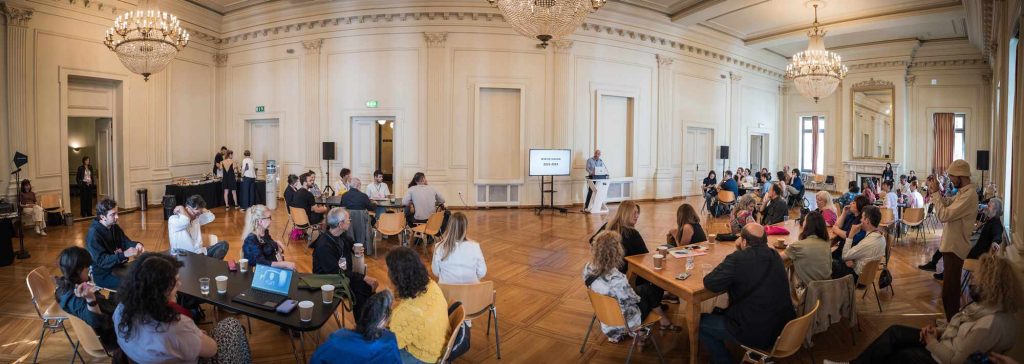
These three major gatherings also offer an important opportunity to spotlight contemporary Greek theatre on the international stage and enhance its global reach and visibility, according to Irini Moundraki, Head of Dramaturgy, Library, Archives, and International Relations at the National Theatre of Greece, in an interview with TO BHMA International Edition.
A Spotlight on Greek Contemporary Theatre
“We all engage with ancient drama—it’s our great heritage, but contemporary work, by comparison, doesn’t receive the same exposure,” explains Moundraki. “This is precisely why we created the NTG Showcase: to offer an opportunity for international audiences to experience what Greek theatre is doing today.”
Now in its third year, the NTG Showcase hosts 25 prominent artistic directors, programmers, and curators from leading international theatres and festivals. These professionals—many of whom work on co-productions and international touring—will attend a curated selection of current NTG productions including “Faust”, “Caryatid!”, “Pandora”, “An Enemy of the People”, “Nils Holgersson, Lilika and the Four PIs”, and “Three Sisters”.

A shot from GNT’s 2025 production: Faust.
Beyond presenting full productions, the Showcase creates space for Greek artists to engage directly with international guests, sharing their work in specially designed events. “If some of these productions end up touring abroad, we’re of course delighted—that’s the culmination of what the Showcase is all about,” says Moundraki, recalling the global success of Goodbye Lindita, a non-verbal performance by Mario Banushi that continues to tour worldwide.

A shot from Mario Banushi’s “Goodbye Lindita”.
She also cites last year’s City Lights, directed by Amalia Bennett, as a standout collaboration with the Serbian National Theatre. But even when international touring isn’t feasible, Moundraki stresses that these encounters matter. “It’s incredibly valuable for Greek artists to have their work seen by professionals abroad. Even if a specific production doesn’t travel, these exchanges can lead to new collaborations in the future.”
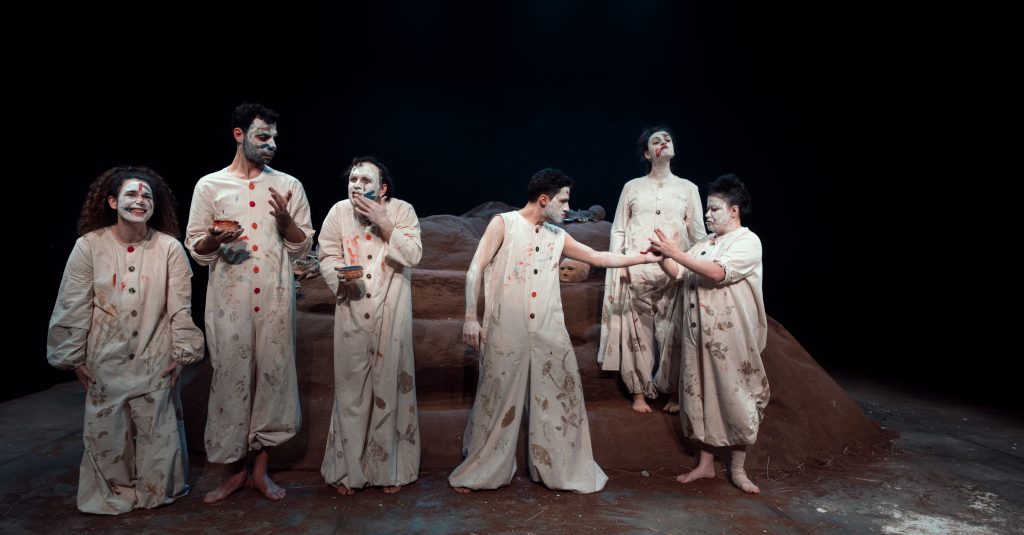
A shot from “Pandora” displayed at the Showcase, directed Wichi. ©Patroklos_Skafidas
European Theatre Convention: “Thrive Theatre, Thrive!”
“In the context of this year’s Showcase, we’ve also had the honor of hosting two additional major events,” Moundraki notes. She first refers to the International Conference of the European Theatre Convention (ETC)—Europe’s largest network of publicly funded theatres, of which the NTG has been a member since 2022.
Held under the theme “Thrive Theatre, Thrive! Keep the Flame Alive,” the conference brings together theatre leaders to tackle pressing issues facing the sector today. Among the featured speakers are Executive Director of ETC Heidi Wiley, director and founder of Attis Theatre Theodoros Terzopoulos, Artistic Director of the Athens and Epidaurus Festival Katerina Evangelatou, IATC President Jeffrey Eric Jenkins, ETC Chair Claudia Belchior, and Prof. Dr. Shuyan Liu, an expert in global mental health.
Remote contributions come from Milo Rau, Artistic Director of the Vienna Festival “Free Republic of Vienna,” and Oleksandra Matviichuk, human rights lawyer, head of the Center for Civil Liberties, and recipient of the 2022 Nobel Peace Prize.
Through four days of panels, keynote talks, and workshops, the conference is asking urgent questions:
- How can theatres in 2025 defend democratic and humanitarian values?
- What kind of leadership and working conditions do theatres need?
- Can artistic programming fight disinformation and support freedom of expression?
- How can theatres remain resilient, creative, and inclusive in times of crisis?
- And above all, how can theatres sustain meaningful, impactful work while remaining accessible to communities?
International Association of Theatre Critics (IATC)
Finally, as part of this unique four-day event, the NTG is also hosting the Executive Committee (ExCom) of the International Association of Theatre Critics (IATC), a partner organization of the UNESCO-affiliated International Theatre Institute.
The IATC fosters international understanding through dialogue and exchange, bringing together critics, scholars, and performing arts professionals to promote critical discourse and safeguard freedom of expression.
This year’s ExCom meeting, hosted in the NTG’s historic Ziller Building, coincides with the Showcase, allowing committee members to attend productions and experience Greek contemporary theatre firsthand.
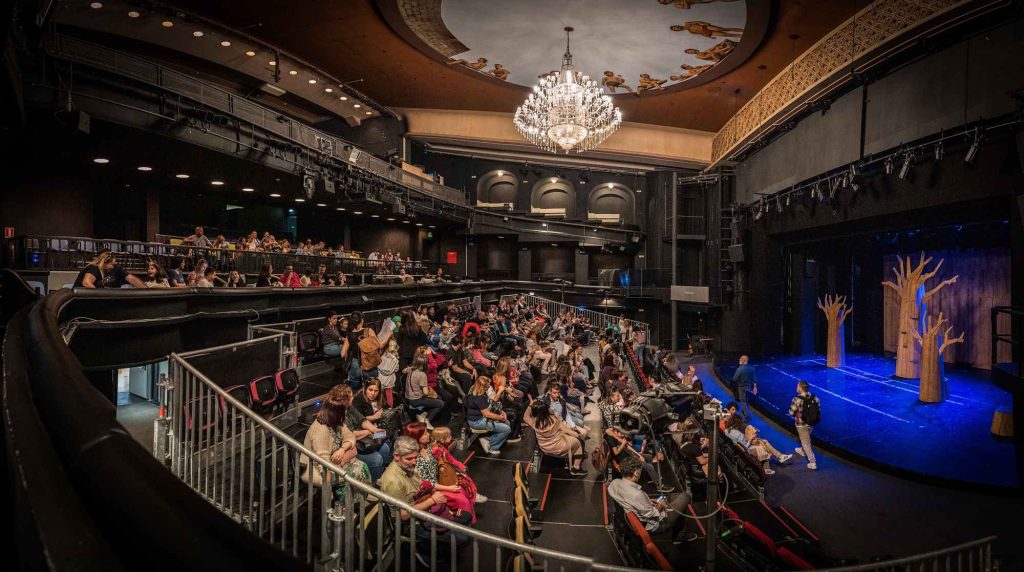
Following the events, the NTG’s current season will be featured in a special issue of Critical Stages, the IATC’s biannual publication.
“We believe visibility must be nurtured on multiple levels,” Moundraki says. “That’s why we’ve invited additional critics and journalists to attend. It’s crucial that these efforts don’t just take place and then fade away—they need continuity and lasting impact. What happens this April, for example, should spark conversation and provide a platform for Greek theatre to enter broader international discourse,”Moundraki concludes.
The Showcase is part of the National Theatre’s broader Outreach Initiatives, implemented under the Greece 2.0 National Recovery and Resilience Plan, with funding from the European Union’s NextGenerationEU.
